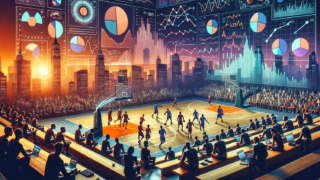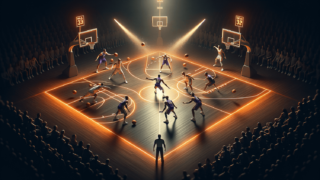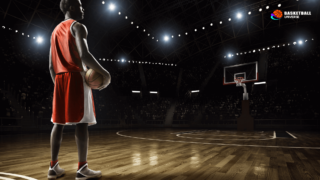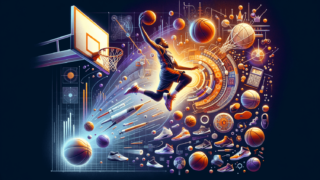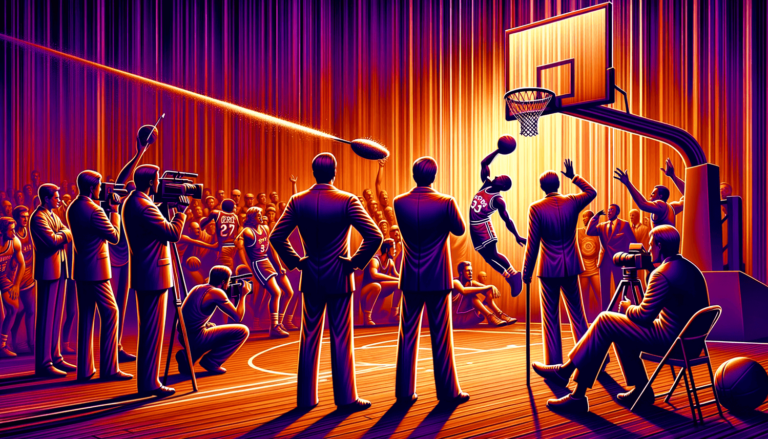
Most Controversial Moments in Basketball History
Written by: Basketball Universe
Last updated:

Prepare to be taken on a thrilling ride as we dive into the most controversial moments in basketball history that left fans, players, and coaches debating, outraged, and utterly astonished. From stunning yet controversial calls, heated rivalries, suspensions, to cultural impacts, these dramatic instances have shaped the game in unimaginable ways. So, buckle up and join us as we explore these unforgettable occurrences that continue to spark conversation and evoke strong emotions in even the most fervent hoops aficionados.
Most Controversial Moments in Basketball History
Controversial moments in basketball history include events such as the 1972 Munich Olympics gold medal game between the United States and USSR involving chaotic final seconds; the Malice at the Palace in 2004, where a brawl between the Detroit Pistons and Indiana Pacers escalated to involve the crowd; and the 2002 Western Conference Finals, riddled with dubious officiating, where the Sacramento Kings lost to the Los Angeles Lakers. These episodes and others forever etched in the game’s history sparked heated debate and changed the trajectory of the sport.
The Finale Fiasco: 1972 Munich Olympics Gold Medal Game
Basketball history would be incomplete without discussing the highly controversial ending to the 1972 Munich Olympics gold medal game. As the United States and USSR teams battled for supremacy, the closing moments of this historic game ignited a furor that still smolders five decades later.
Final Countdown
At the forefront of this unforgettable moment was a contentious decision that single-handedly changed the outcome of the match. The United States had just pulled ahead with a one-point lead, and it looked like they were about to clinch another gold medal. However, with only three seconds remaining, the Soviets were granted an extra possession—a decision that shocked everyone.
They subsequently scored a winning layup, snatching what appeared to be a certain victory away from the Americans. This outcome was later mired in allegations of timekeeping manipulations and biased judgments, forever casting a shadow over the ending of the 1972 Munich Basketball gold medal match.
The Unofficial NBA “Frozen Envelope” Draft Controversy: 1985
The NBA Draft Lottery has consistently been a game-changing event for teams, as it determines the order of their draft selections. However, in the NBA’s first-ever draft lottery in 1985, the waters were muddied by a conspiracy theory that still divides fans today.
Was It Rigged?
The New York Knicks had endured a few disappointing seasons, and their fans were clamoring for a turnaround. The 1985 NBA Draft Lottery had an incredibly talented rookie named Patrick Ewing up for grabs, and it seemed like landing him could revitalize the struggling franchise.
During the lottery, NBA commissioner David Stern picked an envelope to place the Knicks in the draft order. The envelope was allegedly bent in one corner, sparking a conspiracy theory that the NBA rigged the lottery in favor of the Knicks to draw attention back to the big market team. Regardless of the truth, this infamous moment in basketball history will always intrigue fans.
Malice at the Palace: Indiana Pacers vs. Detroit Pistons, 2004
No discussion of controversial basketball moments would be complete without mentioning the infamous “Malice at the Palace.” This unforgettable event not only tarnished the reputations of the players involved, but it also had a seismic impact on the league itself.
A Brawl to Remember
The Malice at the Palace transpired on November 19, 2004, during a game between the Indiana Pacers and Detroit Pistons. The incident began with a hard foul and quickly escalated into an all-out brawl as players spilled into the stands to confront unruly fans. Not only did the fight result in the suspension of nine players and the imposition of hefty fines, but it also forced the NBA to reexamine its approach to player behavior, discipline, and fan interactions in a bid to repair its tarnished image.
2002 Western Conference Finals: Sacramento Kings vs. Los Angeles Lakers
The meeting between the Sacramento Kings and Los Angeles Lakers in the 2002 NBA Western Conference Finals was expected to be an epic showdown between two titans. Instead, it turned into one of the most controversial moments in basketball history, with accusations of rigged outcomes and conspiracy theories running rampant.
Beyond the Foul Line
The series was neck-and-neck before reaching Game 6, where controversy struck. Fans and pundits alike accused referees of making dubious calls to favor the Lakers, who ultimately won Game 6 and went on to become NBA Champions after prevailing in Game 7. The aftermath of this fateful game led to discussions and investigations into the integrity of NBA officiating, and it remains one of the most discussed controversies in basketball history.
Formation of the Miami Heat Superteam: 2010
In 2010, the NBA landscape was forever changed with the formation of a new superteam in Miami. The convergence of LeBron James, Dwyane Wade, and Chris Bosh—three of the league’s biggest stars—under the Heat banner was unprecedented and generated a storm of reaction and debate.
LeBron’s ‘The Decision’
LeBron James announced his departure from the Cleveland Cavaliers to join the Miami Heat via a one-hour televised special called “The Decision.” The show was met with widespread criticism for James’ handling of the situation, leaving many fans feeling betrayed and questioning the league’s competitive balance. The Miami Heat’s superteam set a new precedent in the league, influencing the league’s player movement trends and altering the power dynamic among teams for years to come.
Donald Sterling’s Racist Remarks: 2014
Racism reared its ugly head in 2014 within the NBA when a recording of then-Los Angeles Clippers owner, Donald Sterling, making offensive racial remarks surfaced. The incident shook the basketball world and left teams, players, coaches, and fans demanding immediate action.
Swift Action and Lifetime Ban
The NBA and then-commissioner Adam Silver acted quickly to penalize Sterling, handing down a lifetime ban and a $2.5 million fine. Additionally, the league forced Sterling to sell the Clippers franchise. This moment in basketball history reaffirmed the league’s commitment to combating racism and promoting inclusivity both on and off the court.
Deflategate Hits the Hardwood: 2015 NBA Playoffs
Just when basketball fans thought the game was immune to deflation controversies, the 2015 NBA Playoffs came along to prove them wrong. The Houston Rockets accused the Dallas Mavericks of using a less inflated ball during game three of their first-round matchup.
Scandal or Simple Oversight?
The officiating crew ultimately identified the problem, and the ball was replaced during the game. While the incident didn’t result in any fines or suspensions, the event raised questions about the importance of equipment consistency and compliance in protecting the integrity of the sport.
These are just a few of the most controversial moments in basketball history, illustrating both the highs and lows that accompany the passion and drama of this great game. While some incidents stand as cautionary tales, others have inspired change and left an indelible mark on the game we love.
Referee Betting Scandal: Tim Donaghy’s Dark Secrets
In one of the most unexpected and unfortunate events in basketball history, fans and insiders alike were shocked to learn about the infamous NBA betting scandal involving referee Tim Donaghy. This chapter in the game’s timeline was a stark reminder of the everlasting fight against corruption in professional sports.
Illegal Officiating Decisions
Tim Donaghy, a respected NBA referee, was caught placing illegal bets on games he officiated over the course of two seasons between 2005 and 2007. He was accused of making officiating decisions to manipulate point spreads deliberately. When discovered, the scandal prompted heated debates over the integrity of the sport and potential ramifications on players, coaches, and fans.
Consequences and Changes
Upon the revelation of the controversy, Donaghy was fired from the NBA, sentenced to 15 months in prison for conspiracy to commit fraud, and ordered to pay restitution fees. In the aftermath, the league instituted a multitude of changes to prevent similar incidents in the future. This included increased transparency, referee background checks, and stronger internal oversight to help restore faith in the game’s integrity.
Notorious Rivalries: The Celtics and 76ers Incident – 1965 Eastern Conference Final
There’s no denying that fierce rivalries make up a significant portion of basketball history, and few rivalries were more contentious than the one between the Boston Celtics and the Philadelphia 76ers in the 1960s. In one particularly memorable episode, the 1965 Eastern Conference Final displayed an intensity that crossed the line in the waning moments of the series.
Greer’s Weltschmerz
During Game 7, with seconds left on the clock, the 76ers’ Hal Greer attempted to inbound the ball from the baseline. In an unparalleled turn of events, Celtics player John Havlicek intercepted the pass, dashing the 76ers’ hopes of proceeding to the NBA Finals. “Havlicek stole the ball!” went on to become one of the most enduring phrases in basketball broadcasting. Though a remarkable athletic achievement, Greer and his team were left with an overwhelming sense of disappointment, disbelief, and dismay.
The Celtics would go on to win the NBA Championship that season, further fueling the rivalry between the two teams that would persist through the decades. The 1965 fiasco remains a significant moment with lasting implications and will forever be remembered as one of the most heartbreaking and controversial instances in basketball history.
The Flagrant Foul: Pistons vs. Bulls – 1991 Eastern Conference Finals
In a heated showdown during the 1991 NBA Eastern Conference Finals between the Detroit Pistons and the Chicago Bulls, tensions soared, culminating in an unforgettable hard foul by Pistons player Laimbeer on Bulls superstar Michael Jordan.
A Sour End to the Rivalry
The bitter rivalry between the Pistons and the Bulls was well-known—dubbed the “Bad Boys” era—characterized by aggressive play and competitive match-ups. The Pistons had taken the previous two championships and were seeking a third. However, the Bulls, led by Michael Jordan, were on the rise, ultimately defeating them in the series.
The infamous hard foul by Bill Laimbeer caused Jordan to plummet to the floor, leading to an altercation between the two teams. Rather than congratulating the Bulls post-game, the Pistons unceremoniously walked off the court—a controversial move seen by many as a show of classless and unsportsmanlike behavior. This indelible moment solidified and intensified the rivalry between the teams and is etched into the annals of basketball history.
From heated rivalries to off-court controversies, these additional chapters in basketball history explore the passion, competition, and drama that define the game. Though some may also serve as cautionary tales, these moments are integral to the growth and fascination of the sport we celebrate today.
Frequently Asked Questions
While we’ve delved into some of the most controversial moments in basketball history, many enthusiasts still have questions about the implications and details of these events. To help satisfy your curiosity, we have compiled answers to ten frequently asked questions related to this topic.
1. Were any officials punished for their involvement in the 1972 Munich Olympics controversy?
The game officials involved in the 1972 Munich Olympics controversy were not penalized by any sport governing body. However, their judgment during the final seconds of the game was widely criticized, as many believe it affected the outcome of the match.
2. Was anyone ever able to prove that the 1985 NBA Draft Lottery was rigged?
No concrete evidence has ever emerged to prove that the 1985 NBA Draft Lottery was rigged. The accusations and conspiracy theories surrounding the event are based primarily on speculations and perceived irregularities in how the draft lottery unfolded.
3. After the Malice at the Palace, what changes were made to improve player-fan interactions?
In the aftermath of the Malice at the Palace incident, the NBA implemented several changes to improve player-fan interactions. These included stricter guidelines for fan behavior, increased security measures at arenas, a revamped code of conduct for players, and higher fines and suspension penalties for on-court altercations.
4. Were any referees dismissed or penalized following the 2002 Western Conference Finals controversy?
While no referees were directly penalized or dismissed as a result of the 2002 Western Conference Finals controversy, the event led to increased scrutiny of officiating and prompted a review of referee training, selection, and evaluation processes.
5. Did LeBron James face any penalties for his “Decision” to join the Miami Heat?
LeBron James did not face any league penalties for his televised “Decision” to join the Miami Heat. However, he faced widespread criticism from fans and analysts, which undoubtedly affected his public image at the time.
6. How did the NBA respond to the Donald Sterling controversy in terms of promoting inclusivity?
In response to the Donald Sterling controversy, the NBA enforced a lifetime ban on the former Clippers owner, fined him $2.5 million, and mandated the sale of the team. Furthermore, the league reaffirmed its commitment to diversity and inclusivity through various initiatives, including mandatory education programs, workforce development efforts, and community outreach.
7. What happened to Tim Donaghy after the NBA betting scandal?
After the NBA betting scandal involving Tim Donaghy came to light, he was fired from his position as an NBA referee. He was later sentenced to 15 months in federal prison on conspiracy to commit fraud charges and ordered to pay restitution fees for his involvement in the scandal.
8. Was anybody ejected or suspended from the 1965 Eastern Conference Final between the Celtics and 76ers?
No players or coaches were ejected or suspended during the 1965 Eastern Conference Final between the Boston Celtics and the Philadelphia 76ers. The game is remembered as an exciting and closely contested match and is significant mainly due to its surprising finish and impact on the rivalry between the two teams.
9. In the 1991 Eastern Conference Finals, did Bill Laimbeer face any disciplinary actions for his hard foul on Michael Jordan?
Bill Laimbeer was assessed a flagrant foul for his hard hit on Michael Jordan during Game 4 of the 1991 Eastern Conference Finals. However, no additional disciplinary actions were taken by the NBA against Laimbeer or any other players involved in the altercation.
10. What are some examples of controversial moments that led to rule changes in basketball?
Controversial moments often lead to rule changes in basketball. One example is the “hand-checking” rule, which originated from aggressive defensive tactics employed by teams like the “Bad Boys” Pistons of the late 1980s and early 1990s. The rule prohibits defenders from using their hands to impede an offensive player’s movement. Additionally, the league implemented clearer guidelines and expectations for player behavior and fan interaction following the Malice at the Palace incident.
Featured Posts
- No pillar pages found.

